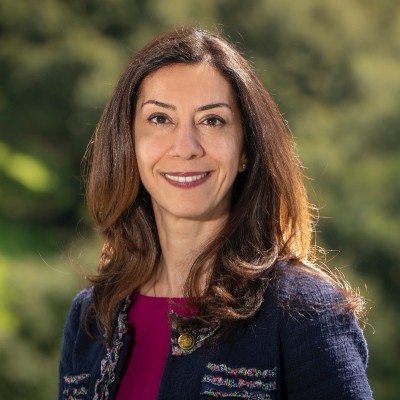Newsha Ajami, Stanford University | Stanford Women in Data Science (WiDS) Conference 2020
About This Video
Newsha Ajami, Director of Urban Water Policy, Stanford University sits down with Sonia Tagare for WiDS 2020 at Stanford, CA.
#WiDS2020 #WomenInTech #theCUBE
https://siliconangle.com/2020/03/16/c…
Creating resilient, sustainable water supplies means flipping the management paradigm
Humanity is dependent on water, but modern methods have major flaws. Perhaps today’s technology can help.
For millennium, settlements were centered on water supplies and drought signaled disaster. The Egyptians were the first to manage the critical resource; diverting the Nile flood waters using a series of dams and canals in a major irrigation project that turned a seasonal lake into a water reservoir. The concept was exploited to great success by the Romans; the empire became known for its sophisticated aqueduct system that transported water from rural areas to towns.
What was basically the same idea continued into the twentieth century, and dams and reservoirs are still being built to supply our ever-expanding cities. However, despite being the definitive method for water management for most of human civilization, the top-down model has a major flaw.
“People were not part of the loop. The way that they behaved, their decision-making process, what they use, how they use it, wasn’t necessarily part of the process,” said Newsha Ajami (pictured), director of urban water infrastructure and policy at Stanford University’s Water in the West program. “We assume there’s enough water out there to bring water to people and they can do whatever they want with it.”
As well as Water in the West, Ajami works with Stanford-based National Science Foundation Engineering Research Center’s Re-Inventing the Nation’s Urban Water Infrastructure (ReNUWIt), and is in her second term serving on the San Francisco Bay Regional Water Quality Control Board.
Ajami spoke with Sonia Tagare, host of theCUBE, SiliconANGLE Media’s mobile livestreaming studio, during the Women in Data Science conference in Stanford, California. They discussed how Ajami is working to bridge the gap between science and policy in water management, building solutions for water resilient cities, and changing the traditional top-down water management model to a more collaborative bottom-up approach.
This week theCUBE spotlights Newsha Ajami in its Women in Tech feature
Girls and boys are equal in STEM
Ajami was born in Tehran, Iran, to a family of engineers. She was encouraged in her love of math and problem solving and recalls spending hours building Legos and playing mathematical games. She credits her mother with being her biggest fan and mentor and is quoted as saying she was “raised gender blind” and taught “to be fearless, open-minded, and resilient.”
Thanks to her family’s recognition and support of her math and science abilities, Ajami attended Amirkabir University of Technology, one of Iran’s top universities. She graduated with a bachelor of science in civil and environmental engineering.
“We are all equal. Our brains are all made the same way. It doesn’t matter what’s on the surface,” is Ajami’s message to those who want to study for a career in math, science, technology or engineering. “I encourage all girls to study hard and not get discouraged. Fail as many times as you can, because failing is an opportunity to become more resilient and learn how to grow,” she said.
After living in Tehran during the Iran-Iraq war, Ajami personally understands how water shortages can affect daily life for a city’s inhabitants. “Demand management and public awareness was a centerpiece in dealing with scarcity,” she said, recalling how the experience inspired her to focus on sustainable resource management.
Ajami moved to the United States to attend graduate school at George Washington University, but soon switched to the University of Arizona’s hydrology and water resources program to study under Soroosh Sorooshian, founding director of the university’s National Science Foundation center on sustainability of semi-arid hydrology and riparian areas. “It was one of the best decisions I made,” she said
Her time at the University of Arizona inspired a love for public policy and applied interdisciplinary research, and after obtaining her master’s degree, Ajami followed Sorooshian to the University of California at Irvine to pursue a doctorate in civil and environmental engineering. She continued her education with post-doc research at the University of California at Berkeley, in “the impacts of hydrological uncertainty on efficient and sustainable water resources management and planning.”
…
Here’s the complete video interview, part of SiliconANGLE’s and theCUBE’s coverage of the Women in Data Science conference:
In This Video


